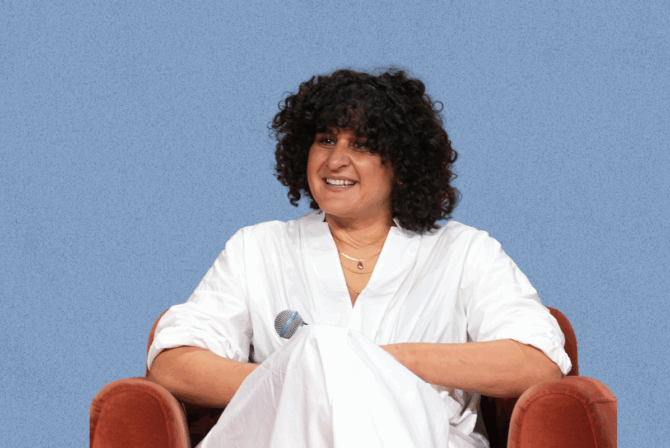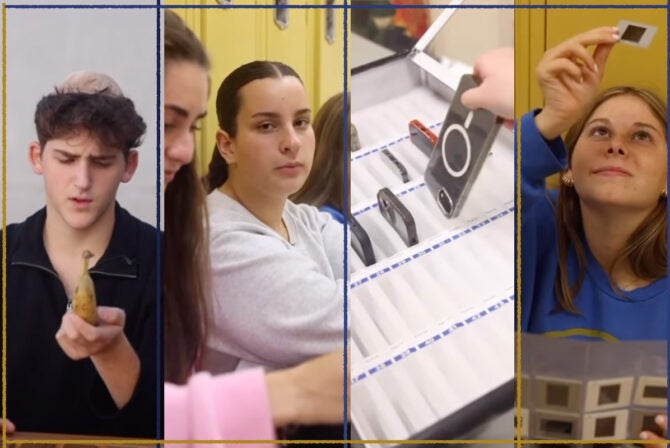If my kids’ schools are any indication, some new flower names are blooming (sorry) as of late. And according to U.S. baby name data, names like Lily, Violet, Iris, Dahlia, Magnolia and Flora are as popular as they’ve ever been. But flower names are nothing new; before these names were popular, Daisy, Rose, Poppy and Heather reigned supreme. What can we deduce from this information? It’s always a good time to give your baby a flower-inspired name — so why not try one of these floral Jewish names?
*Note: Most of these names are more commonly used as girls’ names, unless otherwise stated. All U.S. baby name popularity data comes from the Social Security Administration’s baby name tools, which can be found here. All baby name definitions come from Kveller’s Jewish baby name bank, in partnership with Hebrew Union College’s Jewish Language Project.
My personal top 6:
Ayla: A name from Biblical Hebrew, Ayla is pronounced like Isla (currently in the U.S. top 50) and means “terebinth tree,” a flowering bush that is native to the Mediterranean region. It’s also a variant of the Hebrew Ayala, which means “gazelle.”
Bluma: This old-fashioned name means “flower” in Yiddish, and as old-fashioned names and extremely girly names are having a moment, it feels suddenly current.
Dahlia/Dalia: Dahlia is used internationally as a reference to the flower of the same name, but in Hebrew the word can also mean “hanging branch” or “tendril,” and was a popular name in Israel in the 1970s when flower names were ubiquitous. The name is more strongly associated with Hebrew when spelled “Dalia” or “Dalya.”
Eden: A reference to the biblical Garden of Eden, the word in Hebrew means “pleasure” or “delight.” In Israel, Eden is a unisex name, though in the U.S. it’s much more commonly used for girls.
Nurit: Hebrew for “buttercup.” Buttercup! Is there a cuter flower? This name is almost nonexistent in the U.S. and has fallen way out of fashion in Israel, so you’d have to be willing to be extremely unique — but imagine the gift you’d be giving your child to spend their life telling people, “My name’s Nurit. It means buttercup.”
Sigal: Violet is climbing the ranks of popular baby names in the U.S. — it’s currently the 15th most popular name — but Sigal, the Hebrew word for violet, and one of the flower names that peaked in Israel in the 1970s, is still a hidden gem in the U.S.
And all the rest:
Aviv/Aviva: Hebrew for “spring,” and an increasingly common choice for American Jewish families, likely due to its easy pronunciation in English (and the opportunity for cute nicknames like Viv). Aviv is generally used as a boys’ name, while Aviva tends to be a girls’ name.
Carmel: A popular name in Israel, Carmel can mean “garden,” “vineyard” or “orchard.”
Chatzeva: This name derives from the Hebrew word khatzav, which means “squill,” a flower in the lily family with a purple or white blossom. (Note: Our Israeli editor says she has never heard of a single person with this name, so unless you strive to have the most unique baby name there ever was, proceed with caution.)
Chelmonit: This is the Hebrew name for the sternbergia flower, a member of the crocus family found in Israel. (Note: Our Israeli editor also says she has never heard this name, so again, proceed with caution.)
Iris: The word iris comes from the Greek word for rainbow. Today, it refers to the flower as well as the colorful part of the eye. Iris as a name is used across cultures; in modern Hebrew it’s pronounced ee-REES.
Kalanit: The Hebrew word for “anemone,” which is the national flower of Israel and a symbol of resilience. Wouldn’t Kallie be a cute nickname?
Lilach: The Hebrew spelling and pronunciation (lee-lach) of Lilac. Like the names Dalia and Sigal, Lilach was trendy in Israel in the 1970s, but in 2023, only five girls in the entire country were given the name. Is it time for diaspora Jews to bring it back from extinction?
Netta: An international name — it’s a Scottish variant of Neil, and a nickname for Annette or Jeanette — but in Hebrew, it means “plant” or “shrub” (and is the name of one of the most famous pop stars in Israel!)
Nitza/Nitzan: A peppy name that means “flower bud” or “blossom” in Hebrew.
Perach: Hebrew for “flower.”
Raiza/Raizel: This name appears in many cultures — in Greek, it originates from the word for hero or warrior and its Slavic origins mean “paradise” — but for our purposes it originates from the Yiddish word “royz”: Rose.
Rakefet: First and foremost, a Hebrew name just begging for the nickname Rocky/Raki. If you must know the actual meaning, it’s “cyclamen plant.”
Rosalba: A name used in Spanish and Italian and Ladino, meaning “white rose.”
Rotem: A modern Hebrew name that technically means “desert plant” but is used to refer to a specific flowering bush also known as Retama.
Savyon: This unisex name is the Hebrew word for “senecio,” a plant in the daisy family.
Sharon: Pronounced Shah-RONE, this unisex name usually refers to a plain in Israel, but is also a reference to a Biblical phrase: “I am the rose of Sharon, and the lily of the valleys.” The plant “rose of Sharon” is a flower in the hibiscus family.
Shoshana: A classic Jewish name, and a versatile one, too: In modern Hebrew it can mean both “lily” and “rose.”
Vered: Vered is one of the Hebrew words for rose. (Shoshanna is also used to mean rose in modern Hebrew.)
Yaara: Hebrew for “forest” or “honeysuckle.”
Zer: A rare Hebrew name for boys meaning “flower bouquet.”
Zimbul: This girl’s name is Ladino for “hyacinth.”








